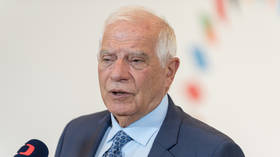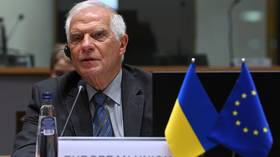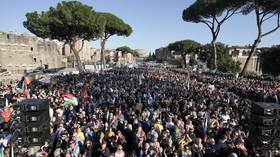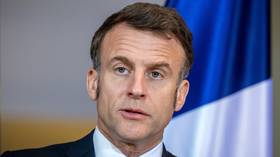Borrell wants to combat EU's Ukraine skeptics

The EU must tackle sections of public opinion which favor a swift end to the Ukraine conflict, and Kiev’s recent offensive in the northeast has helped, according to Josep Borrell, the bloc's top diplomat.
“There is a temptation to abandon [Ukraine] in part of European society,” he told El Mundo newspaper in an interview published on Thursday. People “want to end the war because they cannot bear the consequences, the costs. We have to combat that mentality. The offensive on the northeastern front helps with that.”
Borrell was referring to last week’s Ukrainian operation, in which Kiev’s troops pushed Russian forces out of large swathes of Kharkov Region. Some US officials claimed credit on behalf of the American intelligence services for the advances.
According to Borrell, the Ukrainian offensive was a “breath of fresh air” for Brussels since it serves as affirmation that its strategy was “sound.” He has stated on several occasions that Russia had to be defeated on the battlefield for the hostilities in Ukraine to stop.
The official told the newspaper that the EU strategy to punish Russia required a long time for sanctions to act, and people should be prepared for it.
“It’s like a diet. In a week you may not lose a kilo, but you have to continue,” he said, reiterating the metaphor he used on Tuesday during a speech in the European Parliament.
The EU joined the US in sending military aid to Ukraine and imposing economic sanctions on Russia. It came at a serious cost to European economies, which now have to deal with skyrocketing energy prices and potential shortages of natural gas due to the decision of their governments to decouple from Russian supplies.
Borrell downplayed grim predictions that the upcoming winter could become a disaster for the EU.
“There are political opposition forces that say we are going to freeze to death. Some of those people who say that are not ideological radicals, they insist that the way we are going is a crazy one,” he said.
He suggested that the EU government had to do a better job of “educating” people about the situation.














